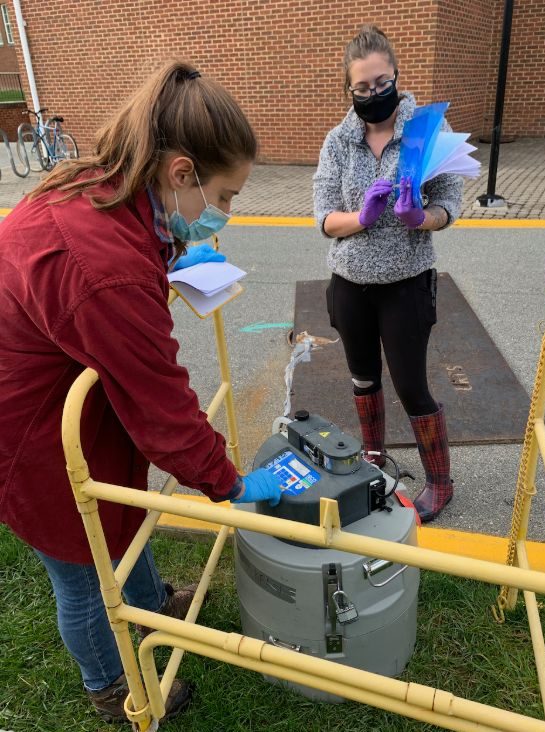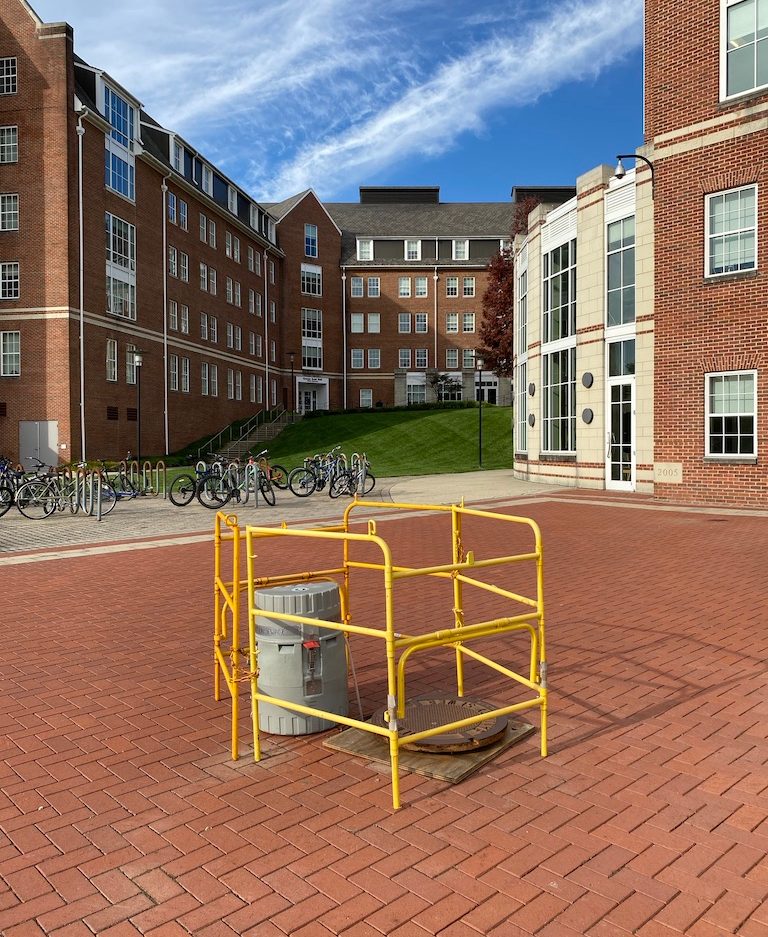
Center for Environmental and Wastewater Epidemiological Research
Welcome to the Center for Environmental and Wastewater-based Epidemiological Research (CEWER) at the University of Delaware. The COVID-19 global pandemic has created an unprecedented public health situation that requires a unique response to track and prevent an overwhelming spread of SARS-CoV-2, the virus which causes the coronavirus disease 2019 (COVID-19). Surveillance of wastewater can provide an additional source of information to be incorporated with ongoing epidemiological efforts.
CEWER is leading local efforts in detection of SARS-CoV-2 in wastewater and connecting the presence of the virus to epidemiological and clinical case data. Perhaps most importantly, CEWER is connecting this information to the current and growing scientific knowledge-base for the development of a framework to assess small catchments such as schools, hospitals, and businesses. Through this work, CEWER aims to Increase our understanding of SARS-CoV-2 and the forecasting of COVID-19 that can be provided by wastewater analysis.
Microbial and disease trend analysis in wastewater has a long history including surveillance of poliovirus, hepatitis A virus, cholera, and antibiotic resistance. From the start of the 2020 calendar year, scientists around the globe have detected SARS-CoV-2 in wastewater. Over time, disease cases and detected viral RNA amounts can be monitored and trend analysis can be useful in informing testing and in enhancing our understanding of virus circulation.
Center personnel
Alexis Omar
Kyle McCaughan






